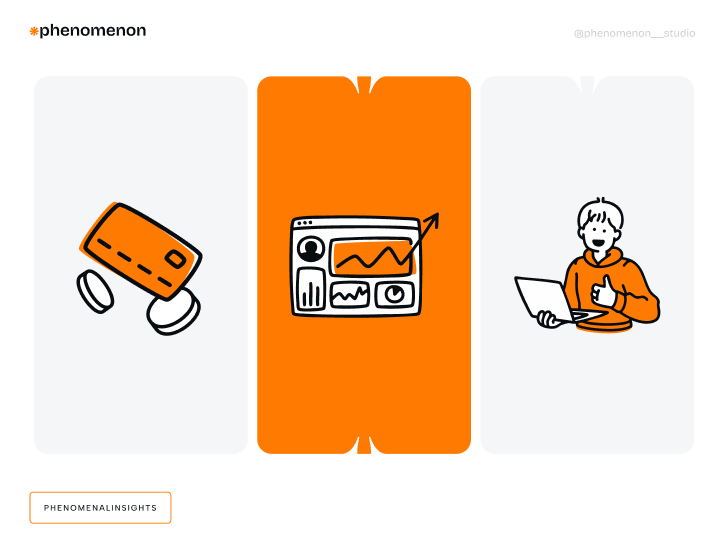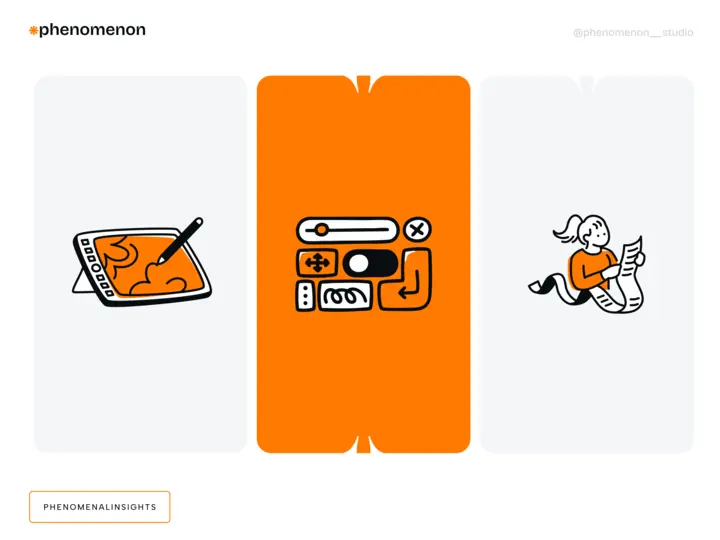Healthcare is undergoing a seismic transformation, and modern technology is redefining how care is delivered – especially at home.
Healthcare is undergoing a seismic transformation, and modern technology is redefining how care is delivered – especially at home. Innovations like telehealth, AI-powered tools, wearable biosensors and even virtual reality are opening up better accessibility, efficiency and personalization within the healthcare industry. Custom software solutions are also playing a crucial role in addressing the unique requirements and challenges of healthcare organizations, offering advantages such as scalability, flexibility, and enhanced security. These new frontiers in healthcare are putting powerful tools in the hands of patients and providers alike so high quality care can happen outside of a clinical setting.
For healthcare professionals, startup founders and industry leaders the opportunities are huge. This blog will explore the key technologies driving the evolution of at-home care and how they’re changing healthcare delivery for patients and providers.
Introduction to Healthcare Technology
The healthcare industry has undergone significant transformations in recent years, driven by the adoption of innovative technologies and healthcare software development services. Healthcare providers are increasingly leveraging electronic health records (EHRs) and other digital tools to enhance patient care, streamline clinical workflows, and improve operational efficiency. The use of EHR systems has become widespread, enabling healthcare professionals to access and manage patient data more effectively. As the demand for high-quality, cost-effective care continues to rise, the importance of investing in custom healthcare software solutions cannot be overstated.
Healthcare software development has paved the way for more integrated and efficient healthcare systems. By utilizing advanced software solutions, healthcare organizations can ensure that patient data is accurately recorded, easily accessible, and securely stored. This not only improves the quality of patient care but also enhances the overall system’s performance. Custom healthcare software development services offer tailored solutions that address the unique needs of each healthcare provider, ensuring that they can deliver the best possible care to their patients.
Moreover, the integration of EHR systems has revolutionized the way healthcare professionals interact with patient data. These systems facilitate seamless data exchange between different healthcare providers, ensuring that patient information is up-to-date and readily available. This level of integration is crucial for providing coordinated and comprehensive care, particularly in at-home care settings where multiple healthcare professionals may be involved in a patient’s care.
In conclusion, the adoption of healthcare software and EHR systems is transforming the healthcare industry. By investing in custom healthcare software solutions, healthcare providers can enhance patient care, improve operational efficiency, and ensure that they are well-equipped to meet the evolving demands of the healthcare sector.
The Current State of At-Home Care
Overview of the Healthcare System and Its Limitations
The traditional healthcare system has been criticized for its limitations, including high costs, inefficiencies, and a lack of patient-centered care. The shift towards at-home care has gained momentum, driven by the need for more personalized, flexible, and cost-effective care delivery models. Healthcare organizations are now exploring innovative solutions, such as remote patient monitoring and telehealth, to extend care beyond the hospital walls. Electronic health record (EHR) systems play a critical role in facilitating seamless data exchange and ensuring continuity of care.
EHR systems enable healthcare providers to access and share patient data in real-time, breaking down the silos that often exist in traditional healthcare settings. This seamless data exchange ensures that all healthcare professionals involved in a patient’s care have access to the same information, reducing the risk of errors and improving the overall quality of care. Additionally, EHR systems support remote patient monitoring, allowing healthcare providers to track patients’ health status and intervene promptly when necessary.
The Need for Cost-Effective and Efficient Care Delivery
The healthcare industry is under pressure to reduce costs while maintaining high standards of patient care. Custom healthcare software development services can help address this challenge by providing tailored solutions that streamline clinical workflows, reduce administrative burdens, and enhance patient engagement. By leveraging advanced data analytics, medical professionals can gain valuable insights into patient behavior, preferences, and outcomes, enabling more informed decision-making. The implementation of practice management software and revenue cycle management systems can also help improve financial performance and reduce waste.
Advanced data analytics tools can analyze vast amounts of patient data to identify trends and patterns, helping healthcare providers make more informed decisions about patient care. These insights can lead to more personalized care plans, improved patient outcomes, and reduced healthcare costs. Practice management software and revenue cycle management systems further enhance efficiency by automating administrative tasks, reducing paperwork, and ensuring that billing and payments are processed accurately and promptly.
The Role of Healthcare Professionals in At-Home Care
Healthcare professionals play a vital role in delivering high-quality at-home care. They must be equipped with the necessary skills, knowledge, and tools to provide personalized care and support to patients in their homes. Custom medical software development can help address this need by providing healthcare professionals with intuitive, user-friendly solutions that facilitate remote patient monitoring, chronic disease management, and care coordination. By prioritizing data security, software development companies can ensure that sensitive patient data is protected and that healthcare professionals can focus on delivering exceptional care. Ongoing support and maintenance are also crucial to ensure that healthcare software solutions continue to meet the evolving needs of healthcare professionals and patients.
Remote patient monitoring tools enable healthcare professionals to track patients’ health status in real-time, allowing for timely interventions and personalized care plans. Custom medical software solutions can also support chronic disease management by providing healthcare professionals with the tools they need to monitor and manage patients’ conditions effectively. Ensuring robust data security measures is essential to protect patient data and maintain trust in the healthcare system. Ongoing support and maintenance ensure that healthcare software solutions remain up-to-date and continue to meet the needs of healthcare professionals and patients.
In summary, healthcare professionals are at the forefront of delivering at-home care, and they require the right tools and support to provide high-quality care. Custom medical software development can equip them with the solutions they need to monitor patients remotely, manage chronic diseases, and coordinate care effectively, all while ensuring data security and ongoing support.
The current state of at-home care
The landscape of at-home care is evolving rapidly, driven by a pressing need for cost-effective and efficient care delivery. A healthcare software development company plays a crucial role in creating secure and efficient medical applications tailored to specific needs within the healthcare sector. The healthcare system is grappling with numerous challenges, including an aging population, a surge in chronic diseases, and a shortage of healthcare professionals. These factors are creating a demand for innovative solutions that can deliver high-quality care right in the comfort of patients’ homes.
Overview of the healthcare system and its limitations
The healthcare system is a complex web of providers, payers, and patients, designed to deliver medical care to those in need. However, it faces several significant limitations:
- High Costs: The escalating cost of healthcare services makes it increasingly difficult for many individuals to access the care they require.
- Inefficient Care Delivery: The system often operates in silos, with fragmented care delivery leading to duplication of services, errors, and poor communication.
- Limited Access: Many individuals, especially those in rural or underserved areas, struggle to access essential healthcare services.
These limitations highlight the need for a more integrated and efficient approach to care delivery. It is crucial to test the integrated system to ensure smooth interoperability and overall performance. Additionally, conducting comprehensive testing guarantees that healthcare software applications function correctly while adhering to regulatory compliance standards.
The need for cost-effective and efficient care delivery
As the healthcare system contends with rising chronic diseases and an aging population, the need for cost-effective and efficient care delivery becomes paramount. Custom solutions in care delivery models can be tailored to meet specific organizational needs, offering enhanced flexibility and security. At-home care offers a viable solution to these challenges by:
- Reducing Hospital Readmissions: By providing comprehensive care at home, patients can avoid unnecessary hospital readmissions, which are both costly and disruptive.
- Improving Patient Outcomes: Personalized care and support at home can lead to better patient outcomes, enhancing overall health and well-being.
- Reducing Healthcare Costs: At-home care can significantly lower healthcare costs by minimizing the need for expensive hospitalizations and medical interventions.
Ongoing maintenance is also a critical component of reliable healthcare software, ensuring functionality, security updates, and adaptability to the organization’s evolving needs.
The role of healthcare professionals in at-home care
Healthcare professionals are the cornerstone of at-home care, providing essential services that help patients manage their conditions and improve their health outcomes. Medical institutions can benefit from advancements such as cloud-based solutions and AI-powered automation, which improve functionality, security, and compliance in line with current healthcare demands. Their roles include:
- Medical Care: Delivering medical services such as wound care, medication management, and disease management.
- Supportive Care: Offering counseling, education, and advocacy to support patients’ overall well-being.
- Coordination of Care: Ensuring seamless coordination with other providers and payers to deliver comprehensive care.
Chronic disease management tools, such as mHealth Apps, empower patients to manage their health more actively by providing resources like medication reminders and symptom trackers, thereby enhancing patient engagement and self-management of their health.
By leveraging their expertise, healthcare professionals can enhance patient care and ensure that individuals receive the support they need at home.
Telehealth and remote patient monitoring (RPM): the foundation of at-home care
The expansion of telehealth
Telehealth has come a long way since the pandemic; it’s no longer just for basic consults. It also provides crucial support for mental health issues, offering virtual therapy sessions and mental health consultations. Now telehealth is everything from mental health support and chronic disease management to remote physical therapy. This has turned telehealth into a full service healthcare solution.
Improvements in video quality and the addition of remote diagnostic tools mean healthcare providers can offer specialized care from a distance. A cardiologist can monitor a patient’s health through telehealth enabled ECG devices or a physical therapist can demonstrate exercises in real time. Expertise in healthcare workflows is crucial when developing telehealth platforms to ensure compliance with regulations and secure coding practices. Seamless integration with various devices and systems enhances the effectiveness of telehealth platforms.
As telehealth continues to evolve, having a well-designed, intuitive platform becomes essential for enhancing patient experiences and ensuring seamless care delivery. At Phenomenon, we understand the importance of a thoughtful, user-centric web presence in the healthcare space. If you’re looking to take your services to the next level, we’d love to help you craft an experience that aligns with the future of care.
Remote patient monitoring (RPM) for proactive care
Paired with telehealth RPM is changing how we track and manage individual health. The significance of medical data in remote patient monitoring cannot be overstated, as it plays a crucial role in improving diagnosis and treatment decisions. Using wearable devices and IoT technologies physicians can monitor patients’ vital signs like heart rate, blood pressure and glucose levels in real time.
The data isn’t just passively recorded. Through AI powered platforms this information can trigger early warnings of potential health decline and allow for timely interventions and prevent minor issues from becoming major ones. Monitoring the system’s performance is essential to ensure optimal functionality and timely interventions. Studies have already shown RPM reduces hospital readmissions for conditions like heart failure, COPD and diabetes.
For underserved or rural communities telehealth and RPM bridges the gap in access to care, delivering specialized services to those who would otherwise be left behind. Together these technologies increase patient engagement, reduce emergency room visits and offer a more proactive approach to healthcare delivery.
Below, we’ve compiled data from various studies on the impact of Remote Patient Monitoring on reducing readmission rates across different patient categories:
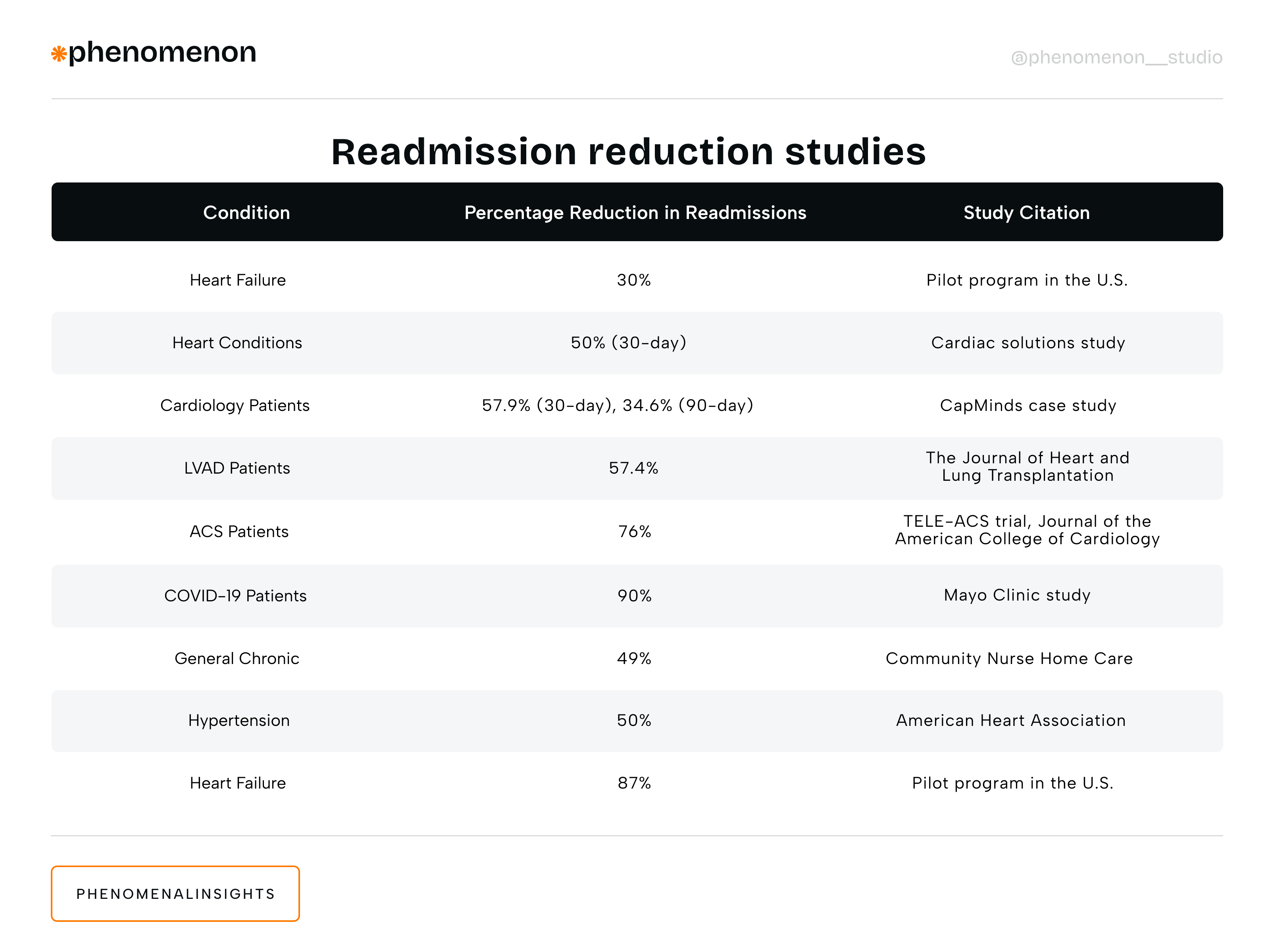
Artificial intelligence and machine learning for personalized care
Artificial intelligence (AI) and machine learning (ML) are revolutionizing healthcare by enabling highly personalized care. Healthcare software product development is a comprehensive service that encompasses all stages of creating medical software solutions, ensuring compliance with relevant regulations. These technologies can analyze vast amounts of patient data to uncover insights that drive better health outcomes. Data analysis, coupled with AI and machine learning, enhances diagnosis accuracy and treatment decisions, ultimately improving patient outcomes and operational efficiency.
AI and machine learning (ML) is changing at-home care big time, personalization and efficiency have never been better
Proactive and predictive care to improve patient outcomes
AI can now sift through massive amounts of patient data—medical history, wearable data, lifestyle factors—and find patterns that even trained professionals miss. Using actual patient data during the testing phase of AI-powered platforms ensures that the system can be validated against real-world scenarios without disrupting live operations. This allows providers to detect disease, predict health emergencies and recommend preventive care all before symptoms arise. Additionally, AI can improve data security by ensuring the integrity and confidentiality of sensitive medical information, enabling patients to have greater control over their medical data.
Personalization
AI is creating fully customized care plans. The flexibility of developing a custom healthcare solution allows for meeting specific patient needs. These plans take into account variables like genetic predispositions, daily habits and past medical records to meet each patient’s unique needs. Healthcare data plays a crucial role in creating personalized care plans through AI. For example an AI powered platform might suggest a diet plan for someone at risk of diabetes or recommend sleep routines for patients with insomnia.
AI-powered virtual assistance
Virtual health assistants like chatbots and smart voice devices are enriching at-home care. They provide medication reminders, answer health related questions and complement human caregivers by addressing patients’ routine needs. Integrating medical billing within these AI-powered virtual assistants can streamline administrative processes. This not only increases patient engagement but also takes some of the administrative burden off clinicians. Additionally, incorporating robust security measures is crucial to protect sensitive patient data in these AI-powered virtual assistants.
One great example of this is MindTales, our AI powered mental health platform. MindTales provides therapeutic services to patients, offers guided support and resources tailored to their mental health needs. It also connects users with practicing psychiatrists for personalized care, bridges the gap between technology and human expertise.
The efficiencies brought by AI make healthcare more targeted, accessible and impactful, better outcomes for patients and more manageable workloads for providers.
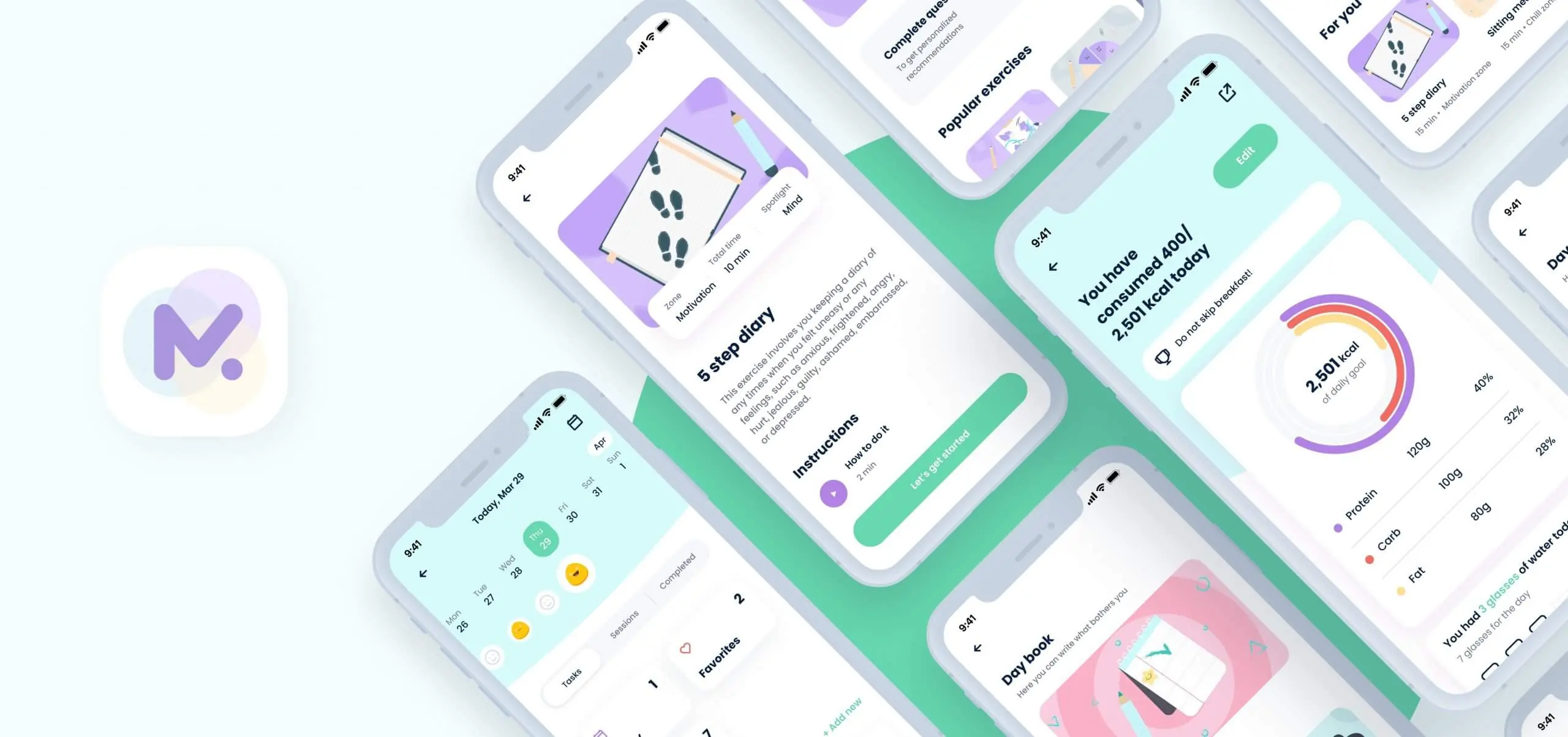
Revolutionizing monitoring with wearable devices and biosensors for enhanced patient care
Wearable devices are no longer just about tracking steps or sleep. Modern technology is equipping wearables with the ability to monitor blood glucose levels, blood pressure, hydration and even stress indicators using biomarkers. These advancements enhance the functionality and integration of medical devices with healthcare applications for improved patient care. Effective data management is crucial in ensuring the accuracy and security of data collected from these wearable devices.
Precision and integration
Today’s wearables are getting more accurate, producing more reliable data for health tracking. Data storage plays a crucial role in providing back-end services for these wearable devices, ensuring security and compliance. When combined with electronic health records (EHR) these devices create a seamless channel of communication between patients and providers, enabling real time monitoring and personalized clinical decisions. It is essential for any healthcare organization to adopt wearable devices to enhance patient care and streamline administrative processes.
Biosensor innovation is also leading to the development of smaller, more flexible devices that can monitor key health indicators in non-invasive ways. For example biosensors can alert both patients and providers of a potential infection or a spike in blood sugar levels, giving them the chance to mitigate problems early.
Virtual and Augmented Reality for remote healthcare
Virtual Reality (VR) and Augmented Reality (AR) is changing at-home care in exciting ways
Therapy, rehabilitation and education
VR is used for immersive physical and cognitive rehabilitation sessions, replacing the need to attend in-person therapy. The importance of clinical data in developing these applications ensures that therapy is both secure and effective. Gamified exercises in a VR environment keep patients engaged, making therapy more effective.
AR is used for real-time visual aids. It can overlay step-by-step instructions for tasks like wound care or physiotherapy, making complex medical tasks more manageable for patients at home. Imagine a caregiver learning how to administer medication with clear, interactive instructions tailored to the patient’s specific needs. These applications enhance a patient’s care by providing immersive and interactive experiences that improve communication and coordination among care teams.
These tools take accessibility to the next level, making it possible to deliver specialized care to patients no matter where they are.
Real world examples and the future of at-home care in the healthcare industry
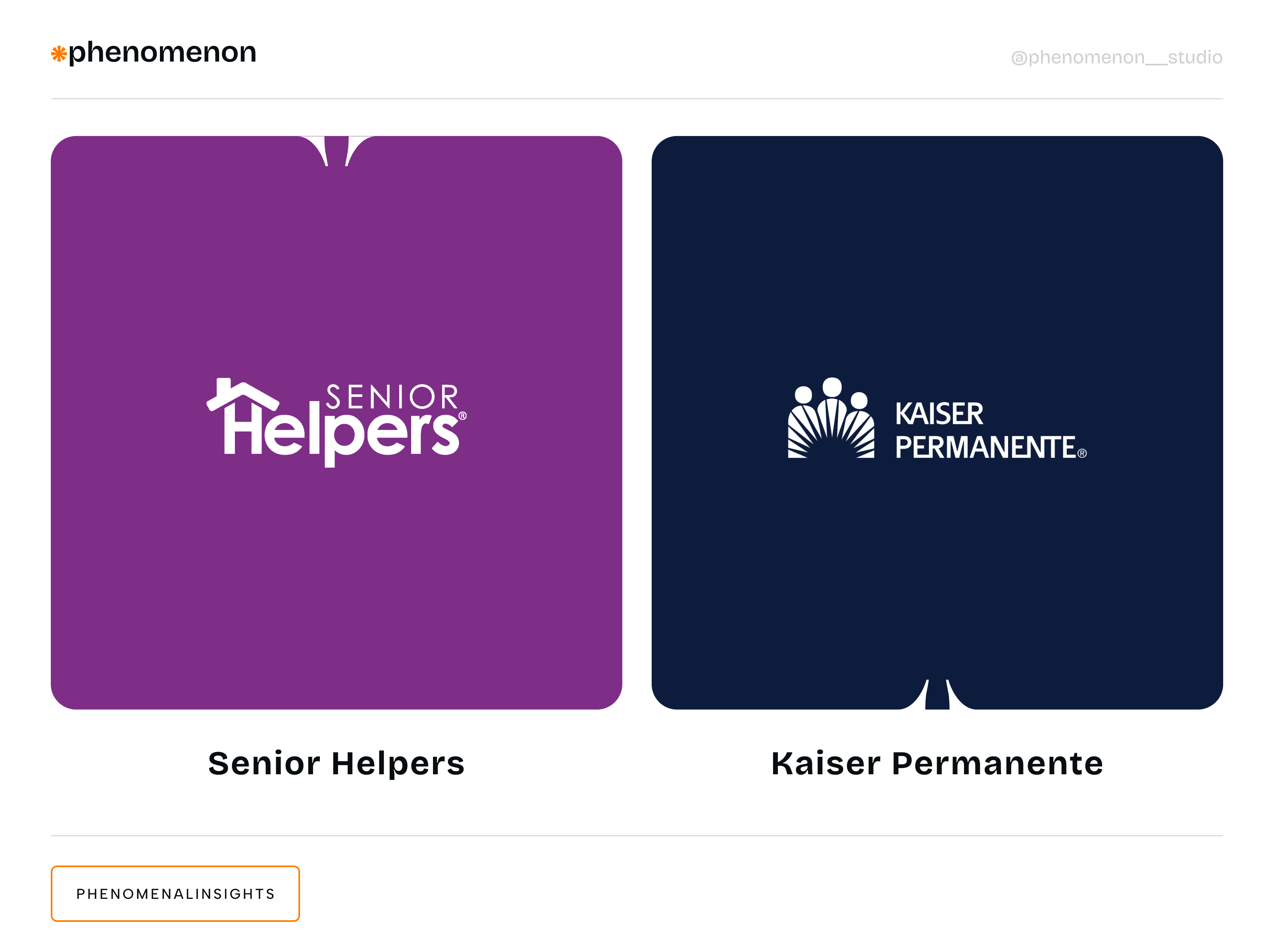
The potential of these technologies has already been demonstrated by healthcare leaders around the world. Healthcare software development plays a crucial role in creating innovative solutions for at-home care. A telehealth program by Senior Helpers reduced the cost of in-home care while improving outcomes. Kaiser Permanente’s RPM program improved chronic disease management and reduced hospital readmissions for patients with diabetes and hypertension.
These success stories prove that integrating technology into at-home care isn’t just a trend – it’s becoming a foundation. Custom software development is essential in meeting the unique needs of healthcare providers and patients. These success stories prove that integrating technological advancements into at-home care isn’t just a trend – it’s becoming a foundation.
What’s next
Looking forward, the combination of technology and healthcare will continue to enable smarter, more personalized and more accessible care. A healthcare software development company plays a crucial role in shaping the future of care by creating secure and efficient medical applications tailored to specific needs. Integrating advanced AI, wearables and immersive solutions like VR/AR will make proactive patient centered care the norm. Emerging technologies are essential in creating efficient and personalized healthcare experiences, enhancing existing solutions and enabling adaptability with future innovations.
Healthcare startups and SMEs now have the opportunity to shape the future of care. By adopting and refining these technologies they can create solutions that serve patients better and optimize operational efficiency.
At Phenomenon, we have extensive experience working with numerous healthcare products, helping to bring innovative solutions to life. If you’re ready to create a game-changing product that makes an impact, reach out to us – let’s build something extraordinary together!










